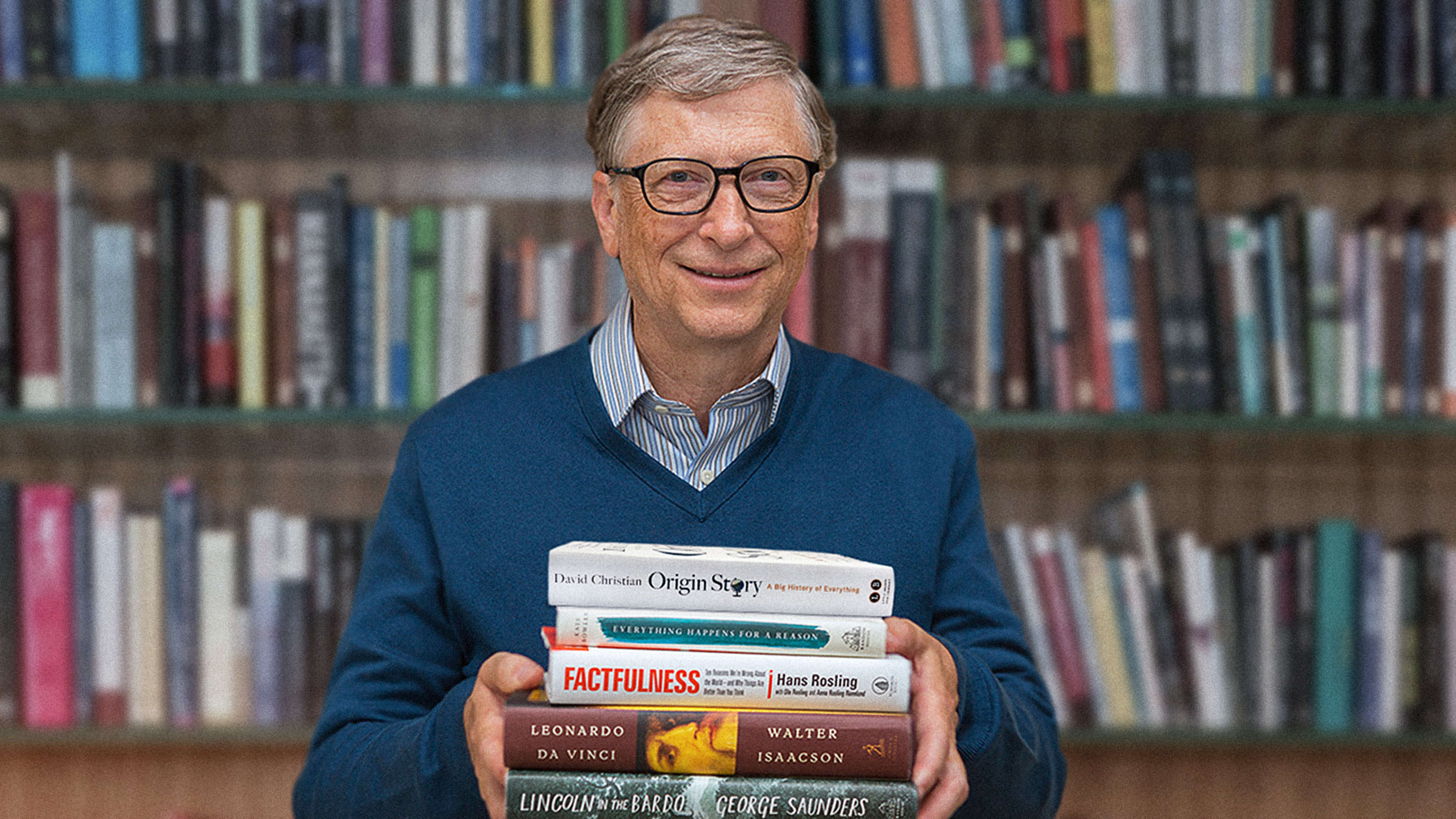Billionaire philanthropist Bill Gates may spend heavily on vaccines and aid programs, but he seems to recognize that the one of the things that money can’t buy is more knowledge.
So each summer (and each holiday season) Gates shares a reading list, which typically introduces some mind-expanding concepts in the guise of beach books. That’s not exactly a secret, even if Gates always acts a little surprised by it. “When I pulled together this list of five that you might enjoy this summer, I realized that several of my choices wrestle with big questions,” he writes on his blog Gates Notes about this summer’s five selections.
In fact, this year he even outlined a few central questions those tomes might help answer. ” What makes a genius tick? Why do bad things happen to good people? Where does humanity come from, and where are we headed?”
The books on the following list appear to address each query in order. There’s a biography about Leonardo da Vinci, a memoir from a woman battling cancer, a fictional account of one night in the life of Abraham Lincoln narrated by ghosts, and even an explainer about how life itself happened, and continues to progress.
By the numbers, that’s only four topics. So think of the fifth book as more of a call to action. It’s written by a global health expert who passed away last year, and circles back to several lessons that relate more directly to how everyone might be able to do more good in the world.
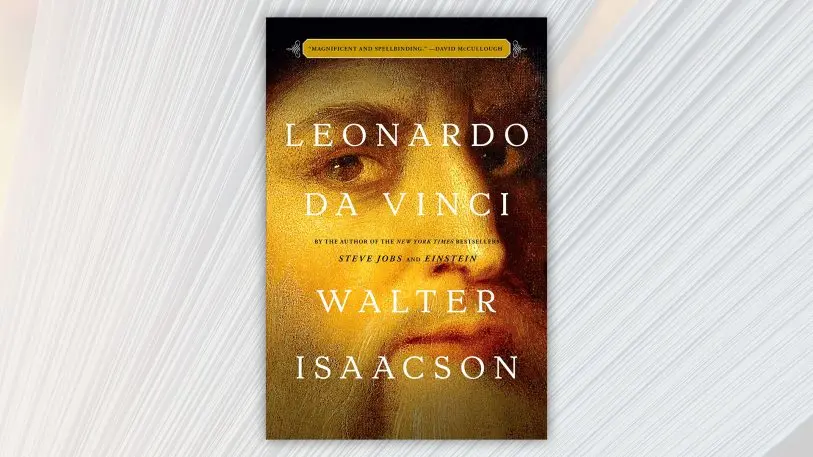
Leonardo da Vinci, by Walter Isaacson
One of the world’s most revered painters and thinkers was largely self-taught and didn’t let the technological restrictions of 500 years ago limit his conjectures about how the world around him might work. “When he wanted to understand something–whether it was the flow of blood through the heart or the shape of a woodpecker’s tongue–he would observe it closely, scribble down his thoughts, and then try to figure it all out,” Gates writes. And curiosity–especially in the online era–may be more valuable than ever.
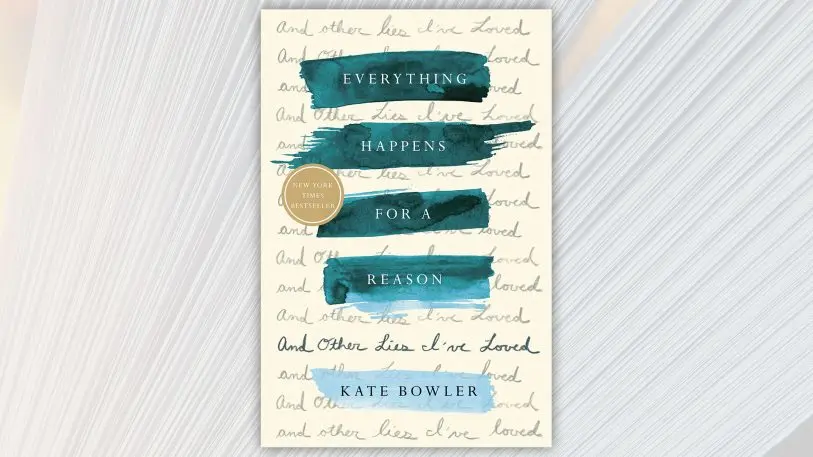
Everything Happens for a Reason and Other Lies I’ve Loved, by Kate Bowler
When a professor at Duke Divinity School is diagnosed with stage IV colon cancer, she grapples with the randomness of chance events, and what people can ultimately do to control them. “[S]ome ‘why’ questions can’t be answered satisfactorily with facts,” adds Gates, who considers the book an explication on the danger of being too devoted to cause-and-effect thinking. Bowler was raised in a Mennonite family that felt strong faith was often tangibly rewarded, giving her a humorous, heartbreaking, and especially valuable perspective.
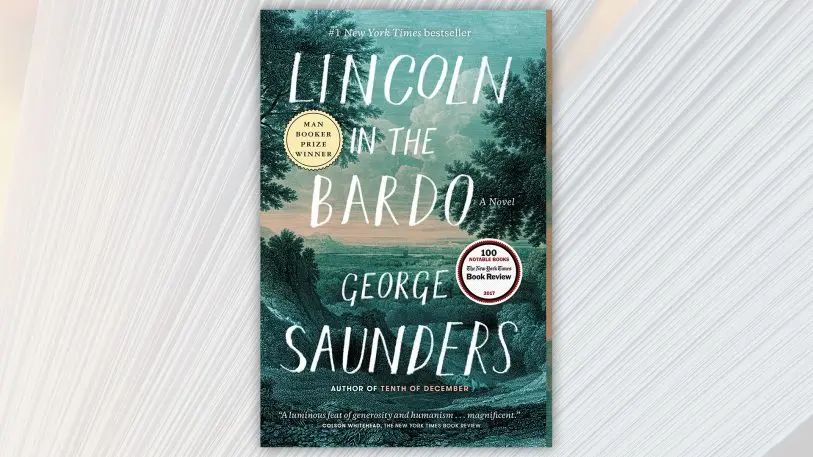
Lincoln in the Bardo, by George Saunders
This fantasy novel has a premise as unconventional as its style. The story takes place over the course of one night, shortly after the Civil War has started, when President Abraham Lincoln visits a cemetery containing the grave of his recently deceased 11-year-old son. Ghosts appear, and the story unfolds in a script-like, dialogue-driven way. As Gates puts it, “The president has a new understanding of the grief he’s creating in other families by sending their sons off to die in battle. He must make a choice. Should the war go on? If it does, how can we ensure the end result justifies the cost of such suffering?”
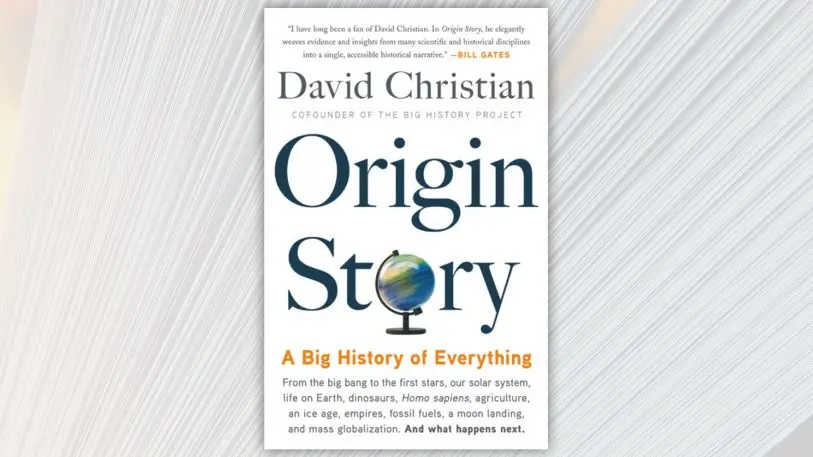
Origin Story: A Big History of Everything, by David Christian
Historian David’s Christian has a way of making the complexity of world history accessible, so much that his related 2011 TED talk has over 8 million views. This book expands on that success. As Gates explains in a review, Christian tends to focus on “threshold” moments for change, like explaining the physics and chemistry of the big bang, or biology and anthropology of our rise from single cell organisms into something imminently more recognizable. For teachers, parents, or lifelong learners who become inspired, Gates supported Christian’s creation of a free online course.
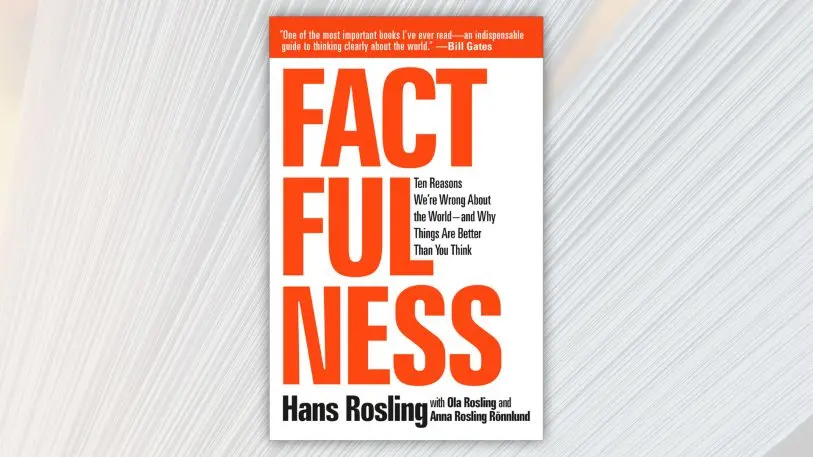
Factfulness, by Hans Rosling, with Ola Rosling and Anna Rosling Ronnlund.
Gates already praised this book in April, when he devoted a separate review to exactly why it’s so empowering for would-be change makers. “The bulk of the book is devoted to 10 instincts that keep us from seeing the world factfully,” Gates added at the time. “These range from the fear instinct (we pay more attention to scary things) to the size instinct (stand-alone numbers often look more impressive than they really are) to the gap instinct (most people fall between two extremes). With each one, he offers practical advice about how to overcome our innate biases.”
The classically Gates point: Life really is improving for many around the globe. But it will take plenty more imagination, inspiration, and commitment to continue forward.
Read this next: Bill Gates has some scary anecdotes about Donald Trump
Recognize your brand’s excellence by applying to this year’s Brands That Matter Awards before the early-rate deadline, May 3.
